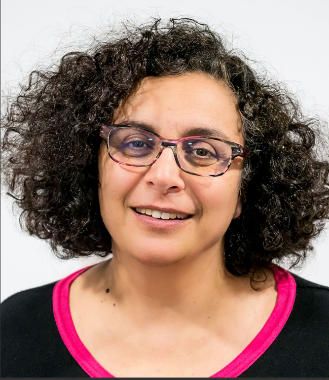
Meet Our Experts - KCNT1 Epilepsy Foundation
Discover the esteemed members of our Scientific Advisory Board at the KCNT1 Epilepsy Foundation. Learn about their expertise and affiliations that guide our mission.
The KCNT1 Epilepsy Foundation is proud to have the support of a diverse group of experienced scientists and pediatric epilepsy neurologists on our Scientific Advisory Board. Bringing these great minds together we are sure to gain insights needed to find disease-modifying methods to cure or halt the progression of this disease.
If you are interested in joining our advisory board, joining our reference list of experts, or would like to participate in research to help find treatments and a cure for KCNT1 please contact Justin@kcnt1epilepsy.org
Scientific Advisory Board
David Bearden, MD MSCE (SAB Chair)
University of Rochester
-
Dr. Bearden is a board-certified pediatric neurologist with a focus on neurogenetic disorders affecting the central nervous system, including epilepsy and autism. In addition, Dr. Bearden has expertise in neurologic problems associated with immunodeficiencies and central nervous system infections. Dr. Bearden’s research focuses on the epidemiology and optimal treatments of genetic epilepsies, with a particular interest in channelopathies. Dr. Bearden did his residency and fellowship at the Children’s Hospital of Philadelphia, and is currently an Associate Professor at the University of Rochester. Dr. Bearden is the Principal Investigator of several studies evaluating KCNT1-related epilepsy.
Mark P. Fitzgerald, MD, PhD
Children’s Hospital of Philadelphia
-
Mark P. Fitzgerald, MD, PhD, is an attending pediatric epileptologist in the Division of Neurology and the Medical Director of the Epilepsy Neurogenetics Initiative (ENGIN) at Children’s Hospital of Philadelphia (CHOP). He has a special interest in treating infants and very young children with epilepsy.
Dr. Fitzgerald’s philosophy of care is centered on listening closely to families’ needs and concerns and providing the information and resources to help them make the best decisions for their child. Along with his work at CHOP, Dr. Fitzgerald is an Assistant Professor of Clinical Neurology at the Perelman School of Medicine at the University of Pennsylvania. His research focuses on neurodevelopmental and epilepsy outcomes in children who experienced a lack of oxygen to the brain as newborns. He also studies responses to treatments in a variety of genetic epilepsies.Dr. Fitzgerald is particularly excited about expanding access to genetic testing for children with epilepsy and customizing treatment for children with difficult to control epilepsy.
Len Kaczmarek, PhD
Yale University School of Medicine
-
Dr. Kaczmarek is a Professor of Pharmacology and of Cellular and Molecular Physiology at Yale University School of Medicine. He carried out his undergraduate and graduate work at the University of London. He continued his research career at UCLA, the University of Brussels, and Caltech before joining the Yale faculty. His laboratory studies biochemical changes in neurons that result in prolonged changes in behavior or sensory processing, and, as part of this work, discovered several new ion channel genes. His group discovered and characterized the KCNT1 (also called Slack) gene which encodes a potassium channel that is activated by sodium ions during neuronal firing, and found that human disease-causing mutations in KCNT1 make these channel hyperactive. He has made animal models of KCNT1 epilepsy and has collaborated with neurologists, geneticists, and clinicians to develop pharmacological and genetic treatments for this condition. One current effort in the laboratory is to discover and correct the way mutations in KCNT1 affect the ability of neurons to make new proteins in response to stimulation, a process that is absolutely required for all learning and that, when perturbed, contributes to severe intellectual disability. He is honored to have had numerous outstanding graduate students and postdocs in his laboratory, thirty-two of whom have gone on to hold tenure-track faculty positions at major institutions.
Amy McTague, MBChB, PhD
University College, London, UK
-
Dr. McTague earned her Bachelor of Medicine, Bachelor of Surgery at the University of Edinburgh in 2000. She is a clinician scientist with a research group including a post-doctoral fellow and masters students at the Zayed Centre for Rare Disease Research in Children . Her research vision is to move from precision diagnosis to precision treatment in childhood epilepsy. She is an honorary consultant paediatric neurologist at Great Ormond Street specialising in paediatric epilepsy, in particular early onset epilepsies. As a consultant in the Complex Epilepsy team she sees regional and national referrals and provides expert opinions on children with genetic epilepsies. She undertakes Epilepsy Genomics clinics and has established an Epilepsy Genomics MDT for phenotypic and variant classification.
Rima Nabbout, MD, PhD
University Paris Cité
-
Dr. Nabbout is Professor of Paediatric Neurology at University Paris cité and Director of the French reference centre for Rare Epilepsies at Necker Enfants Malades, Paris, France.
She is a member of the steering committee of EPICARE (European reference network on rare and complex epilepsies), chair of ILAE transition task force (TF) and member of nosology, medical therapies and Snomed TF. She is member of the European joint program on rare diseases and of IRDIRC and president of the scientific committee of the French National Data Bank for Rare Diseases. She is member of the scientific committees of numerous French, EU and international patients’ groups.
Professor Nabbout is holder of a Chair on genetic epilepsies at Imagine Institute (INSERM U1163) where she is leading in the group “Translational Research for Neurological Diseases” and coordinating the funded Innov4ePiK, a private-public research program on K-related epilepsies.
Her research focus on childhood epilepsies natural history and mechanisms biomarkers, orphan drugs in epilepsies emphasizing the need of patients’ centred and innovative end points and on transition from childhood into adulthood. She has authored over 300 peer-reviewed articles and received H2020, FP7 grants and research budget from FAMA funds and other philanthropic foundations.
Matt Weston, PhD
Fralin Biomedical Research Institute,
Virginia Polytechnic Institute
-
Dr. Weston is an associate professor at the Fralin Biomedical Research Institute at the Virginia Polytechnic Institute and State University. The overall goal of the Weston Lab's research program is to understand how the brain balances excitation and inhibition in cortical circuits so that it can generate proper patterns of network activity. To do this, the lab studies gene variants that cause human childhood epilepsies and seeks to understand how these variants alter neuronal physiology to cause network hyperexcitability and seizures. Together with its collaborators, the lab has been at the forefront of creating mouse models of clinically discovered human childhood epilepsies and using electroencephalography (EEG) and in vivo calcium imaging to detect, localize, and characterize seizures and other, more subtle alterations in brain activity, seeking to link molecular and cellular changes to whole-organism phenotypes.
Ali Rosenberg, PhD (non-voting)
KCNT1 Epilepsy Foundation
-
Dr. Rosenberg has a PhD from the department of Developmental, Stem Cell, and Regenerative Biology at the University of Pennsylvania, where she studied how injured nerves regenerate. She did her postdoctoral research at Duke University studying tuberculosis. Her research has been funded by multiple awards from the National Institute of Health (NIH). She has worked in the fields of neuroscience, development and regeneration, microbiology, and genetics, with experience in medical writing and grant writing, and at small biotechnology companies.
Alfred L. George, Jr., MD
Northwestern University
-
Dr. George is the Alfred Newton Richards Professor and Chair of the Department of Pharmacology, and Director of the Center for Pharmacogenomics at the Northwestern University Feinberg School of Medicine. He has more than 30 years of experience investigating the structure, function, molecular genetics and pharmacology of human ion channels and transporters. As an internationally regarded leader in the field of channelopathies, Dr. George’s research represents a unique blend of human molecular genetics, ion channel biology and pharmacology
Sarah Ruggiero, MS, LCGC
Children’s Hospital of Philadelphia
-
Sarah M. Ruggiero, MS, LCGC, is a licensed genetic counselor with the Epilepsy Neurogenetics Initiative (ENGIN) at Children's Hospital of Philadelphia. She specializes in the genetics of epilepsy and related neurodevelopmental disorders, and worked as a research scientist within multiple laboratories exploring the pathobiology of neurodevelopmental disorders before becoming a Genetic Counselor. Within the Helbig laboratory at the Children’s Hospital of Philadelphia (CHOP), she serves as a link between the clinical and research efforts of the Epilepsy Genetics Research Project. She has an MS in Genetic Counseling from Arcadia University, as well as a BS in Neuroscience and BA in English from the University of Delaware.
Rikke Møller, PhD, MSc
Danish Epilepsy Centre, Filadelfia
University of Southern Denmark
-
Dr. Møller is a geneticist, professor of epilepsy genetics and Head of Department of Epilepsy Genetics and Personalized Medicine at the Danish Epilepsy Centre, Filadelfia/University of Southern Denmark. Her expertise is in the genetic diagnosis of epilepsy, as well as in exploring the possibility of targeted therapies for patients with genetic epilepsies. A major aspect of her research has been to apply research results in clinical practice and her research fields of interest includes 1) identification of novel genes involved in neurodevelopmental disorders and epilepsy by the use of next generation sequencing techniques, 2) functional characterization of genetic defects to understand their pathomechanisms 3) genotype-phenotype correlations including electro-clinical characterization of genetic epilepsy syndromes and 4) improvement of existing or development of new personalized therapies.
KCNT1
Scientific NETWORK
Alberta Children’s Hospital Research Institute; Cumming School of Medicine, University of Calgary, Alberta, Canada
Unit of Clinical Neurophysiology, Department of Neuroscience and Mental Health, Fondazione IRCCS Ca' Granda Ospedale Maggiore Policlinico, Milan, Italy
UOC Neurofisiopatologia - Clinica Mangiagalli -
Fondazione IRCCS Ca' Granda Ospedale Maggiore Policlinico
University of North Texas System College of Pharmacy Chair and Professor, Pharmaceutical Sciences
Attending Physician, Neurology Assistant Professor of Pediatrics (Neurology)
Northwestern University Feinberg School of Medicine
Lurie Children’s Hospital of Chicago
Vinayan KP, MD, DM
Pediatric Neurologist
Professor & Head of the Department of Pediatric Neurology
Amrita Institute of Medical Sciences, Cochin, India
President and CEO of Kanalis Consulting, L.L.C.
Former Senior Director, Department of Ion Channels, Merck Research Laboratories, Rahway, NJ
School of Biomedical Sciences
University of Leeds
Laura P. Masters, MD
Pediatric Neurologist and Assistant Professor of Neurology
Texas Children’s Hospital
Medical Student, Boston University School of Medicine
Danielle Molinari Andrade, MD, MSc, FRCPC
Krembil Clinician Investigator, Krembil Research Institute (Krembil)
Medical Director of the Epilepsy Program
Director of Krembil Neuroscience Epilepsy Genetics Program
University Health Network, University of Toronto
Professor of Pediatrics Chief, Pediatric Neurology Co-Director, Comprehensive Epilepsy Center
Department of Pediatrics, University of Chicago
Medical Director, Neurology; Co-Director, Jane and John Justin Neurosciences Center;
Medical Director, Genetic Epilepsy Clinic, Neurology
Cook Children’s Hospital, Fort Worth, TX
Professor of Clinical Epileptology
University of Copenhagen, Danish Epilepsy Center Filadelfia
Pediatric Neurologist and Prof. Dr., Head of the Division of Pediatric Epileptology
Children’s Hospital University of Heidelberg, Germany
Professor of Pharmacology, Section of Pharmacology, Dept. of Neuroscience
University of Naples Frederico II, Naples, Italy
James W. Wheless, BScPharm, MD, FAAP, FACP, FAAN, FAES
Pediatric Neurologist
Professor & Chief of Pediatric Neurology
Le Bonheur Chair in Pediatric Neurology, University of Tennessee Health Science Center
Director, Le Bonheur Comprehensive Epilepsy Program & Neuroscience Institute
Tom Horton & Donna Wiener Chair in Neurosciences, Le Bonheur Children's Hospital
Pediatric Epileptologist and Assistant Professor, Pediatrics; McMaster Children’s Hospital
The Hospital for Sick Children











